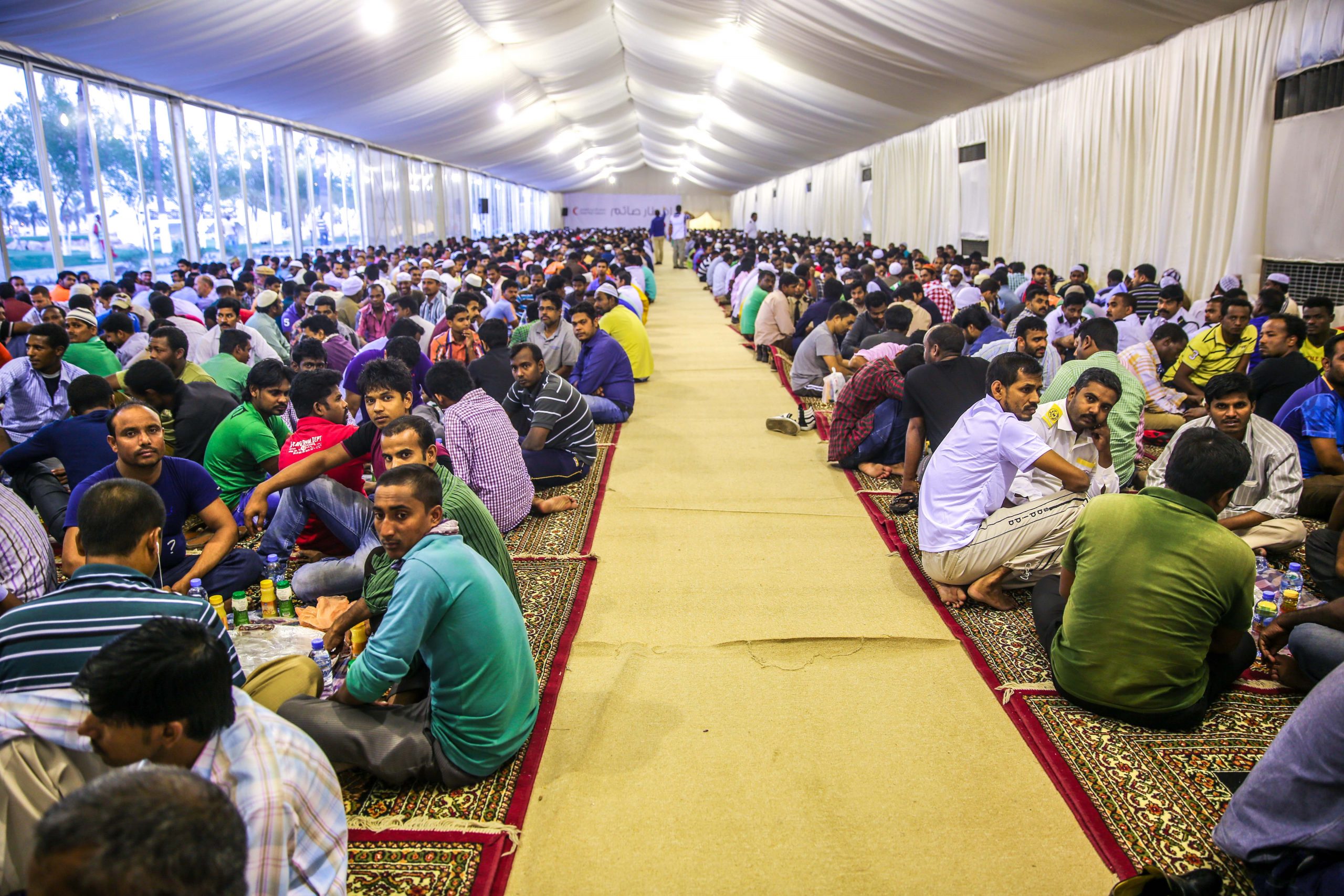
With Ramadan just two weeks away, charities and government organizations in Qatar have begun to announce multi-million riyal initiatives to help those in need during the holy month.
Qatar Red Crescent Society (QRCS) yesterday said it plans to spend some QR96 million on food, healthcare, development and social rehabilitation projects in Qatar and 15 other countries during the holy month and beyond.
The charity said some QR3.11 million will be dedicated to its Qatar-based programs, which include iftar tents, an Eid clothing drive, This is My Wish initiative for ill children in hospitals and Recite And Ascend, which honors students who memorize the Qu’ran.
Its Iftar tents, meal distribution and food packages for families are expected to feed more than 100,000 people during the month, a QRCS spokesman told Doha News.

A further QR33 million has been ear-marked to spend year-round in Qatar on health, social rehabilitation and development projects, QRCS said in a statement.
Globally, the Qatar-based charity will spend QR7.8 million on iftar meals and distribution of food packages during Ramadan for more than 126,000 families in 14 countries. The aid will go to Syrian and Palestinian refugees in Syria and Lebanon, Palestine, Jerusalem, Jordan, Yemen, Iraq, Afghanistan, Sudan, Somalia, Niger, Chad, Central African Republic and Ethiopia.
Meanwhile, a fund of QR51.5 million has been set aside to cover other projects throughout the year in 15 countries in the Middle East and beyond, QRCS added.
Iftar meals
Muslims typically increase their charitable giving during Ramadan, and all of Qatar’s main charities undertake humanitarian initiatives during the month.
While QRCS has not yet given further details on its planned Ramadan programs for this year, its overall fund is similar in value to last year’s near-QR100 million local and international effort.
At the time, the charity set up iftar tents around town, providing meals for up to 6,000 lower-income residents each day during the month.
This was a significant expansion on its effort in 2014, when it fed around 2,800 people a day at iftar.
The expanded offering came amid a significant increase in Qatar’s population, including more blue-collar construction workers who are working to complete the country’s numerous ongoing infrastructure projects.

QRCS spent millions of riyals last year on its food distribution schemes, which covered hospitals, the Grand Mosque and the Industrial Area in addition to iftar tents.
To help with charitable efforts, general donations to the charity can be made online or by text message.
Targeted donations can be made to specific projects by texting 92740 (QR1,000); 92770 (QR500) and 92766 (QR100).
For well-digging projects, text “Charity;” for health projects, send “Treatment;” for Syria projects, send “Syria;” and for Yemen projects, send “Yemen.”
Donations can also be given by phone through the charity’s hotline numbers: 4402 7700, 4402 7883, 4402 7875, 6666 6364 and 6664 4822, or through stalls located in shopping malls around Qatar.
ROTA initiatives
Qatar Foundation’s NGO Reach Out To Asia (ROTA) also announced its plans for its 10th annual Ramadan, with volunteer initiatives including iftar meals for the elderly and construction workers.
In a statement, ROTA said the projects will be in partnership with local organizations including the Social Development Center, Hamad Medical Corp., the Al Thumama-based Qatar Autism Center & Special Needs and the Bangladesh MHM School & College.
Volunteers will share iftar with residents of the Qatar Foundation for Elderly People Care (IHSAN) and the Rumailah Hospital Residential Care Community, and will organize a similar initiative for lower-income workers in Al Khor and Al Shamal municipalities.

In addition to donating money, Qatar’s charities also typically accept volunteers to help out in iftar tents and distribute food parcels on the streets to those still traveling at sunset prayer time.
Many residents also set up their own initiatives in their neighborhoods, cooking and giving out meals or takeaway packages for those preparing to break their fast.
Meanwhile, the Sheikh Eid Charity Association has in previous years organized a food collection service to pick up leftover food from homes, hotels and restaurants and to redistribute these to those in need.
While this operates year-round, it is particularly busy during Ramadan.
Thoughts?







